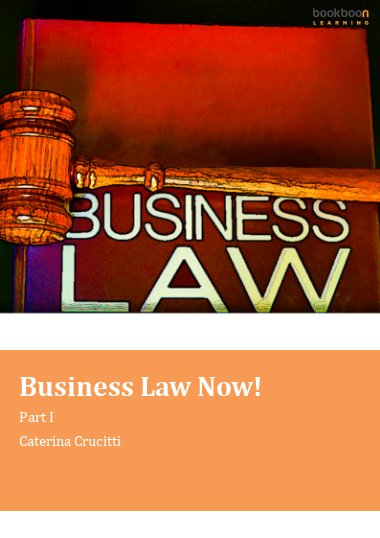Business Law – Now! Is a new succinct online-textbook. The author has attempted to focus and highlight the more important commercial and business applications of the areas of the law covered in todays globalised business world.

Business Law – Now! Is a new succinct online-textbook. The author has attempted to focus and highlight the more important commercial and business applications of the areas of the law covered in todays globalised business world.
Caterina Crucitti